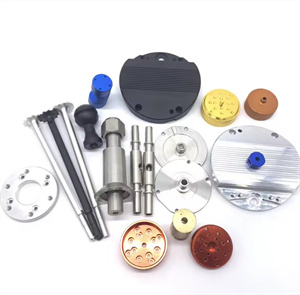CNC Milling has a series of advantages and disadvantages:
Advantages:
High precision: CNC Milling adopts advanced CNC system control, which can achieve micrometer level machining accuracy, ensuring that the size and shape accuracy of components meet design requirements.
High efficiency: Compared with traditional manual or ordinary milling machines, CNC Milling can achieve continuous and automated processing, greatly improving production efficiency. Meanwhile, it can achieve multitasking operations and reduce idle time.
Flexibility: CNC Milling can flexibly change machining processes and workpiece shapes according to program requirements, adapting to different production needs. This makes CNC Milling widely applicable and able to meet the machining requirements of various complex components.
Good repeatability: As CNC Milling is controlled by a computer program, the machining process is carried out completely according to the predetermined specifications, resulting in better stability and repeatability of the machining results, which can ensure the consistency of the components.
Strong adaptability: CNC Milling can not only process parts with complex shapes, but also process complex surfaces that are difficult to machine with conventional methods, and even process parts that cannot be observed.
Disadvantages:
High equipment cost: CNC Milling requires a large investment in equipment and software, which may not be affordable for small businesses. In addition, professional technical personnel are required for operation and maintenance, which increases labor costs.
High technical requirements: CNC Milling requires operators to have certain programming and operational skills, as well as knowledge of material properties, tool selection, and other related knowledge. This may be challenging for people without relevant technical background.
Poor adaptability: CNC Milling is not very suitable for processing some very large or very small components. For large components, it may require ultra large equipment to complete; For small components, higher precision equipment may be required.
Complex maintenance: CNC Milling equipment contains many precision components and sensors, which require regular maintenance and upkeep after long-term operation. This requires technical personnel to have certain maintenance and debugging abilities.
